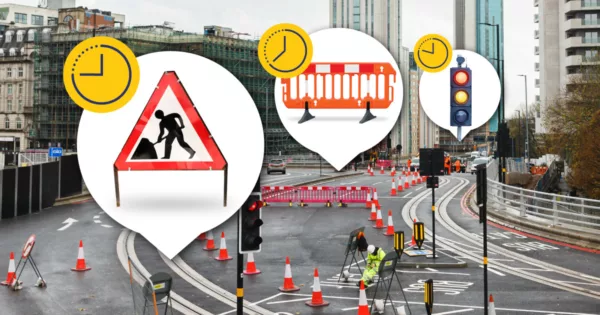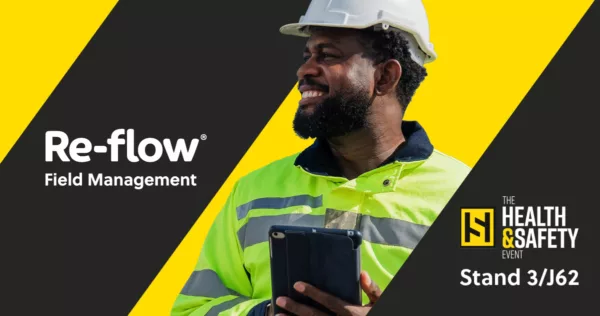
News
Negotiating Net Zero with Highways Industry
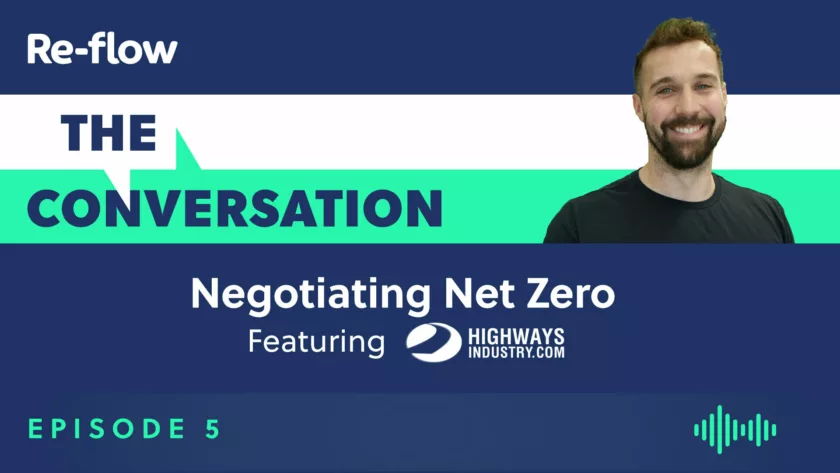
The Conversation with Re-flow Field Management returns for its fifth episode. This time, Marketing Executive, Josh Sims sat down with Matt Lambert, General Manager at Highways Industry to talk about how they started, the idea behind Greener Highways and their new steering group and sustainability in the industry.
Re-flow have been reflecting on their journey, having recently hit the milestone of five years of trading, and wanted to speak to Matt who was part of their journey even before the company’s inception.
The conversation started by touching on the beginnings of Highways Industry and how it was formed from a need to showcase client's brands to the industry.
ML: “The idea for the business was born out of a conversation between a couple of previous directors and our current MD around sourcing product for this industry online. A previous director worked for Balfour Beatty and was tasked with something and was a little bit frustrated that there wasn’t just one place you could go to find out who did it, where you could get it from, and make contact.
“In late 2011/2012 it started as an online directory, a highways yellow pages if you will, and over time sort of evolved from little ideas like ‘why don’t we have some industry news on there’, ‘advertising space where someone could put a banner’ or something like that. Then as the world’s changed and marketing and branding has changed it sort of evolved to be little bit more content heavy. We still have a directory on the website, but we’ve moved away from that model.
“We have the largest online dedicated highways news website in the UK. Our clients utilise digital packages of content on that platform to showcase themselves. We also have a content creation arm to the business so we make videos, aerial drone pilots, we do CGI, we write content, we also do aerial and ground photography. So, we have a pretty broad, extensive range of services, so we can create content and we can release content. We’ve got a rounded offering when it comes to being able to work with clients and really showcase what they’re doing and who they are.”
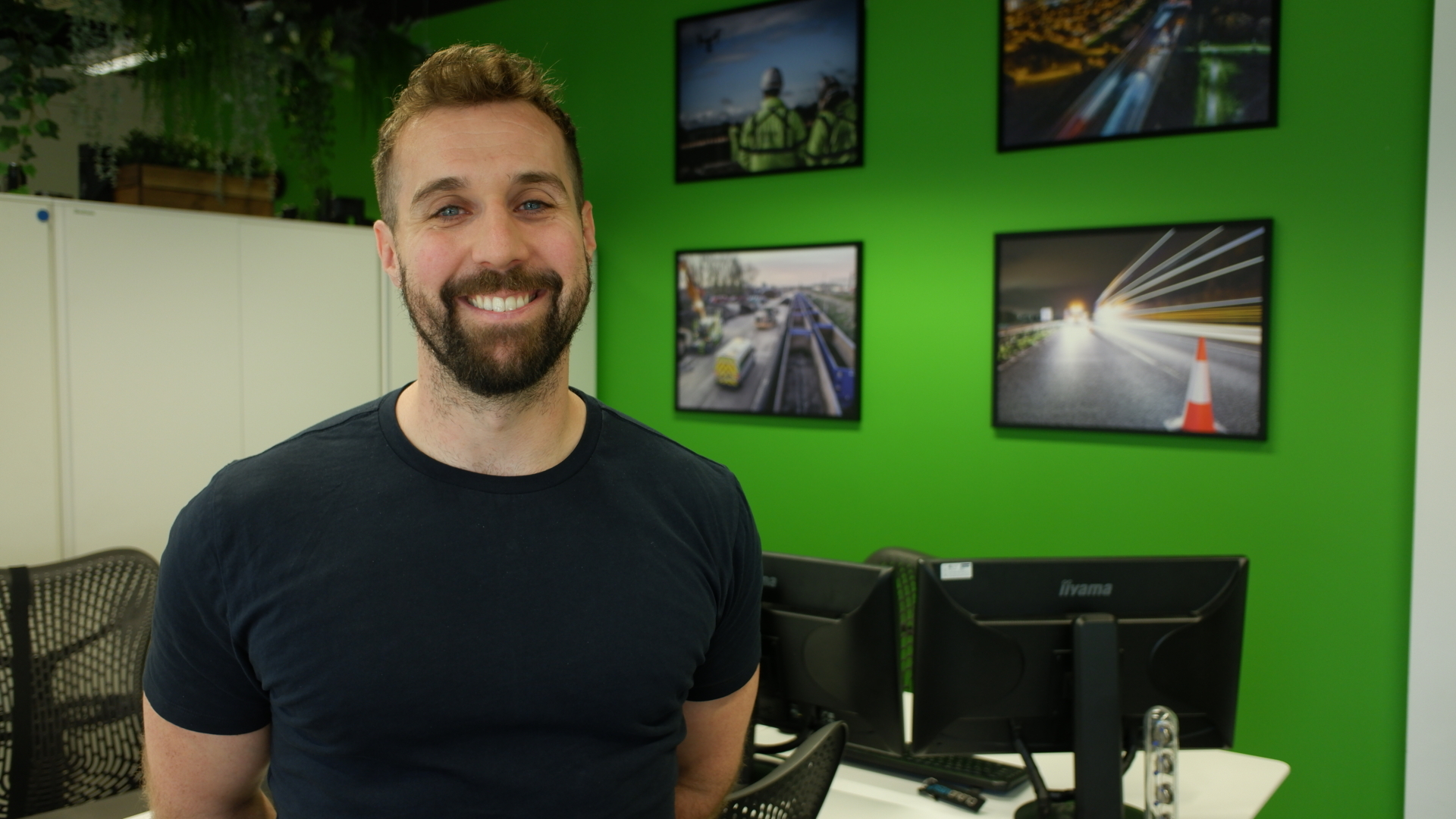
Matt Lambert in the setting of their new offices in London.
The discussion then shifted to talk about what led to the formation of Greener Highways.
ML: “Greener Highways was born out of seeing more of our clients producing content around sustainability and a few conversations in-house leading to, I guess, a question of could we contribute, could we do something that’s a little bit more cause based.
“So Greener Highways built this collaborate working group across the sector helping the acceleration of achieving the sustainability targets that this industry faces. Obviously, it’s very carbon heavy and the premise behind it was things will only really change with more people at the same table sharing ideas, learning from each other and working together.
Greener Highways couldn’t be discussed without mentioning sustainability and how this impacts the general public.
ML: “I had a conversation with a gentleman from the local authority recently who said a lot of local residents want their potholes filled, and their verges trimmed. But as a local authority they have a challenge of encouraging biodiversity, which means they may not trim the hedges or keep the verges clear. Then their people are subject to criticism and abuse. Yes, they want to keep people happy by keeping up the works. But delaying, slowing, or stopping some of the works might actually result in a more positive impact in terms of sustainability. However, everybody has to cater to that road user.
“I think it would be a really positive step if more of the general public understood that what they may see isn’t necessarily lazy workers, or a neglected contract. There are challenges that companies and local authorities within this sector face that can’t necessarily always be solved.”
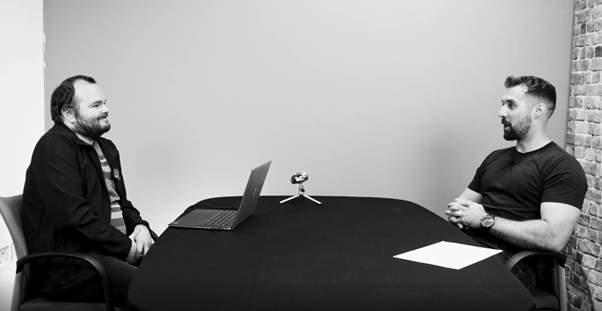
Josh Sims, Marketing Executive and Matt Lambert, General Manager sit down and discuss sustainability
Matt then touched on the development of the Greener Highways steering group which was formed at the beginning of the year.
ML: “I think it pays to have more people that are invested in sustainability and in the future of the sector making the decisions about what Greener Highways are doing. It’s all well and good myself and my director making decisions as a two-man operation, but again we know we’re not necessarily the type of company that’s always got boots on the ground. For the companies that do and have experience in other areas, it pays to have that expertise as part of the decision-making process.
“The steering group is made up of a variety of people and job titles from sustainability directors to SHEQ leads, to marketing managers because ultimately part of what we want to do is spread awareness. It’s feedback on things we’ve done, it’s coming up with new ideas, it’s bringing things from their own businesses that they think could be implemented on a wider scale that through our skills could reach industry more efficiently and quickly than their business alone.
The conversation then turned to the adoption of new technologies within the industry and how there has been some reluctance to change.
ML: “I think there’s a real problem with ‘this is how we’ve always done it’. Re-flow is a digital solution and I’m sure you’ve had to go have a conversation with someone about why they should use software over paper. If someone’s paper system has never left them down, there will be errors, there will be lost paper, but if that business has survived for 5, 10, 20 years, using a paper system why would they use your system. You’ve got 50 reasons why they’d use your system, but I think there’s a mentality of ‘why would we? This is fine, we’re okay here’.
“Skills gap has been mentioned for as long as I’ve worked in this industry. This sector does have a slightly older workforce and we think what if those people can’t do the work but actually a real challenge of that skills gaps is teaching that workforce to go digital, and if there is a reluctance there that is a real problem.”
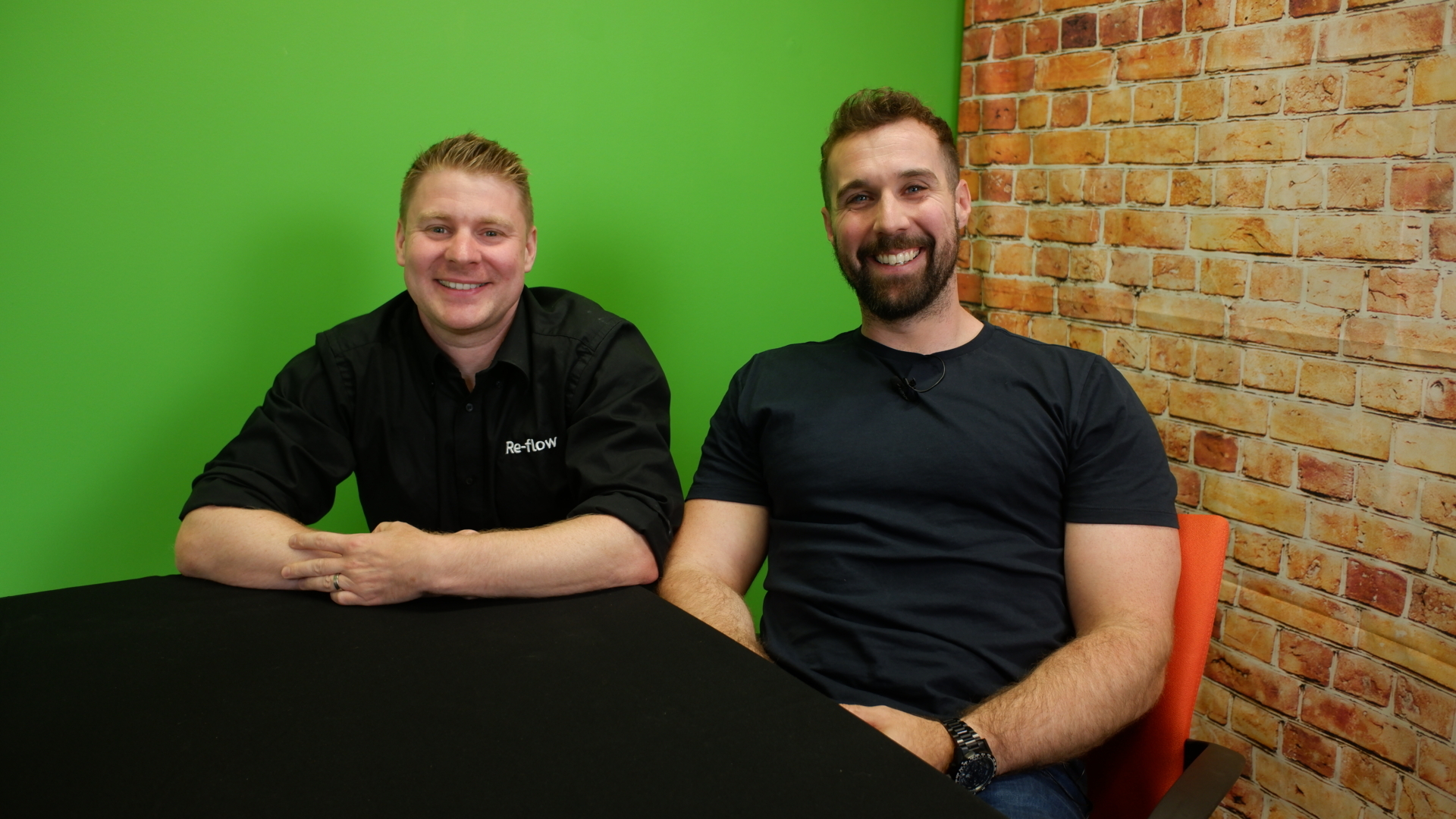
Ashley Wing, Head of Sales & Marketing caught up with Matt behind the scenes of the podcast.
On the topic of technology, Josh asked Matt why he thinks Re-flow is a success.
ML: “The first thing I would say, is going right back before day 1, your CEO, Mike, called us and we had a conversation about what he was working on, this was a small favour and he remembered it. When Re-flow was really up and running, he came back to us to work together. I think if that’s how your organisation works from the top, valuing the relationship, valuing the people who have helped you along the way and then wanting to work together with those people is number one for me. If that is your culture, from a people point of view, I can see why you do have as many clients as you have and the growth.
“Secondly, the product clearly works, it clearly services the need of many companies in this industry, so if you’ve got good people, good relationships, a product and a system that meets a need you are already onto a winner.”
Finally, the conversation touched upon future plans for both Highways Industry and Greener Highways.
ML: “We recently moved in this office space so we’re looking to settle in. One of the big developments for us will be using this space (studio) for our clients. We want them to have a space where they can come and talk about their businesses, talk about industry topics, and make their own content here. This is all just of a way to adding value to working with us.”
Watch the full episode above, or listen on Spotify, Google Podcasts, Apple Podcasts and YouTube.
